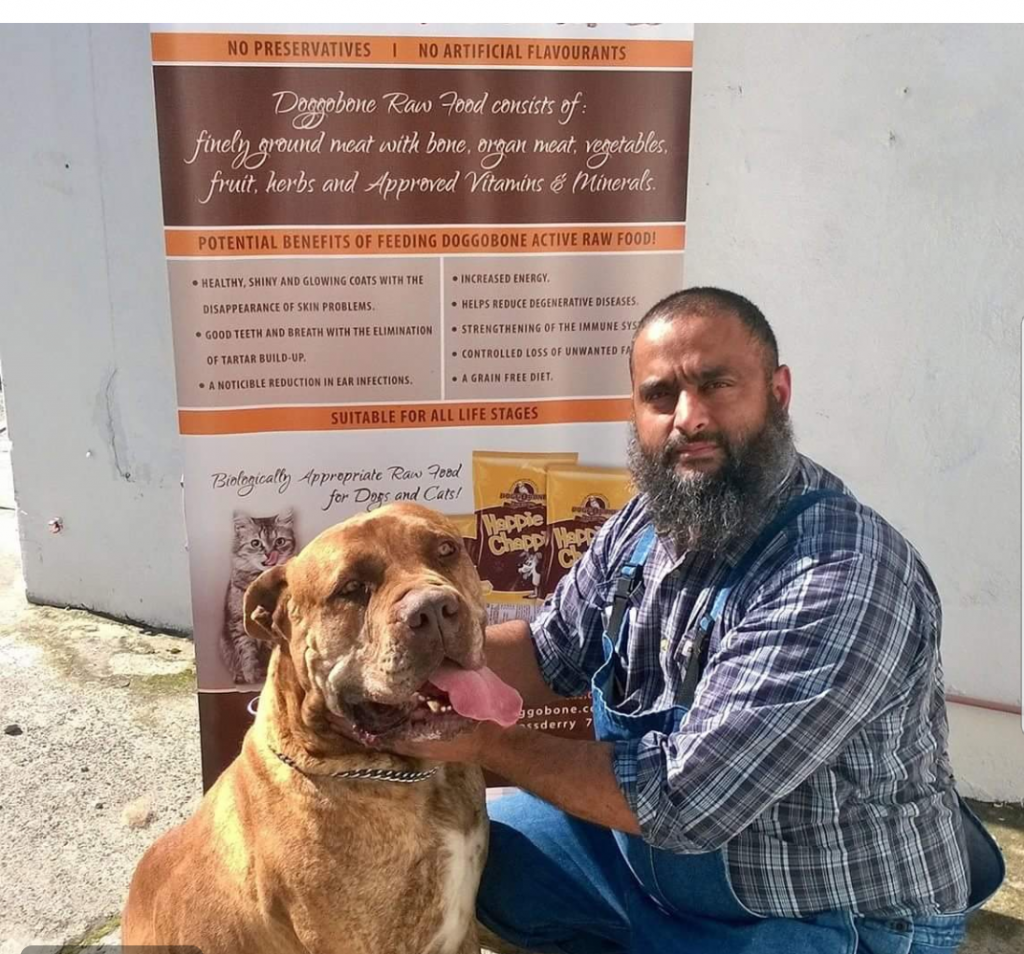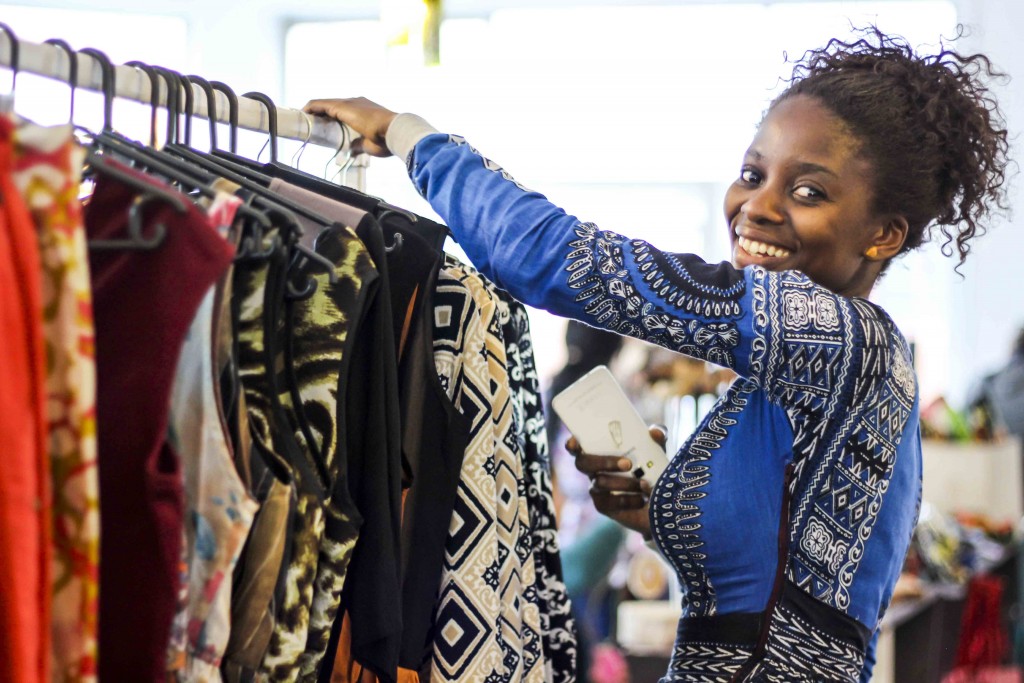LOCAL BUSINESSES ARE THE ENGINE OF THE LOCAL ECONOMY


Doggobone is a family business started in Philippi in 2006 by Zakira and Abdul Kader Palekar. From small beginnings arising from a love for their furry friends, the company now employs 32 people and provides healthy, nutritious raw meals to pets all over the country. Not only do they ensure their four-legged customers are happy and healthy, they also look after their staff, providing transport to and from work every day and taking on the load of laundering staff uniforms at the company’s cost. The couple also support local soup kitchens and animal shelters.
The Doggobone story is just one of thousands that play out every day in South Africa. It is the small and medium-sized businesses, forged out of a passion project or that stem from a simple but good idea, that keep the wheels of the South African economy turning.
Small businesses, big employers
The imperative to buy products and services produced by local businesses is gaining momentum, driven in part by the effects of the coronavirus pandemic lockdowns and a greater desire among local communities to buy local as a means to support local businesses. This impetus is also being led by the increased recognition of the trading power of small and local businesses.
The Centre for Development and Enterprise estimates that formal small and medium enterprises (SMEs) make up nearly 30% of all businesses in the country. Add the informal economy, and the percentage of SMEs rockets to over 90%, according to some reports. What’s more, SMEs employ between 50% to 60% of all employees and contribute around 40% to the national gross domestic product (GDP).
However, despite their contribution, small and local businesses are especially vulnerable to economic shocks. A survey conducted during 2021 by the Craft Brewers Association of South Africa (CBASA) found that around a third of local breweries had to close their doors as a result of the pandemic lockdowns in 2020 alone, leading to approximately 165 000 job losses. This was a body blow to the local craft breweries across South Africa. This is just one sector struggling to keep up with the flagging local economy, external shocks and increased competition from bigger, more resilient and resourced players in the market. This makes it even more important for consumers to choose wisely when deciding where to spend their hard-earned cash.
This is the rationale behind the Made in Cape Town (MiCT) initiative, launched in November 2021 by the Craft and Design Institute and the City of Cape Town’s Enterprise and Investment department: to promote the pulling power of small and local businesses as significant contributors to the local economy. And consumers recognise this too. The numbers tell one story, but more relevant to the reasons why ‘local is lekker’ are the human faces behind the number; the people who are hustling every day to put food on the table for their staff and communities. Their commitment to building their businesses and looking after their staff offer a very human perspective on the economic indicators.
A MiCT survey conducted in December 2021 revealed that nearly 60% of people (out of 251 respondents) always buy products they know are produced locally and are more likely to buy products if they know they are made locally.
What do Peacock Tea, the board game 30 Seconds, and Capitec Bank have in common?
Cape Town is full to the brim of creative ideas, local innovations and successful home-grown businesses. The MiCT survey revealed some of the most-loved recognised brands that originated in the Mother City and surrounds. Food brands such as Bootleggers, Kauai and Groot Constantia, and the gatsby, the city’s signature sandwich, were at the top of the list. Other, newer outlets included the social impact coffee chain I Love Coffee, the band Freshlyground, Peacock Tea, and the board game 30 Seconds. Larger brands include Golden Arrow buses, Capitec Bank and retail giants Ackermans, Pick n Pay, Woolworths, Foschini and Edgars.
MiCT has been conceived to support, promote and celebrate these and many other businesses that have originated in Cape Town and surrounds (defined as destinations located within an hour’s drive of Greenmarket Square). Plans for the launch of an MiCT accreditation are underway, which will enable businesses to be formally recognised as #madeincapetown – a prestigious accolade that will give them a lever over competitors for buyers.
A mark of origin
The Made in Cape Town accreditation symbol will become a sought-after marker of the geographic origins of the business’s products, services and systems, says Erica Elk, Chief Executive Officer of the CDI: “The engine of Cape Town’s local economy is driven by the thousands of dedicated makers, producers, innovators and hard-workers who have made their ideas reality, supporting a wide ecosystem of many other small businesses in the process. Think of who makes and supplies the materials, who creates the products, who has designed and made the packaging, who does the packing and transport, and all over again. That’s why it’s so important for consumers to buy local, every time.”
Members of the public and business owners are free to nominate brands that fit into any of these categories:
- Design innovations for construction, engineering, and industrial sectors;
- Local innovations in food and beverage;
- Media, communications and digital innovations;
- Uniquely Cape Town tourism products;
- Visual and performance arts and entertainment;
- Science, health and agriculture products and services;
- Unique Cape Town solutions designed to solve social and economic challenges; and
- Jewellry, decor, interior design, fashion and accessories.
Alderman James Vos, Mayoral Committee Member for Economic Opportunities at the City of Cape Town said: “These businesses can stand proud as role models for others and leaders in building our local economy. They create jobs, contribute to economic growth and the prosperity of our city, and, by extension our country. They have a critical role to play and we can help them by investing our buying decisions in their businesses.”
Products, systems and services can be nominated by emailing info@madeincapetown.org; tagging the brands on the Made in Cape Town Facebook page or Instagram account; or completing a form on the Made in Cape Town website. They will be able to apply for accreditation which in the long term will become a sought-after mark of origin for eligible businesses, offering them a more prominent profile and a distinct competitive advantage in an ever-more competitive world .
ENDS
Media release distributed for Made in Cape Town by Scout PR & Social Media. For more information, please contact Lauren Shantall, lauren@scoutpr.co.za.
ABOUT MADE IN CAPE TOWN
Made in Cape Town is an initiative that promotes, celebrates and supports products, systems and services that have originated in the Cape Town Metropole and surrounds (destinations located roughly within an hour’s drive of Greenmarket Square). The initiative was conceived in partnership with the Craft & Design Institute (CDI) and the City of Cape Town’s Enterprise and Investment Department, for the direct benefit of businesses and people living, working and playing in Cape Town, and the indirect benefit of the whole of South Africa.
Website: https://madeincapetown.org.za
Facebook: https://web.facebook.com/MadeNCapeTown
Instagram: https://www.instagram.com/madeincapetown/
Email: info@madeincapetown.org
